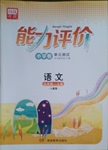题目内容
9.使人放松的 (adj.) relaxing.分析 "使人放松的"是形容词relaxing,用来修饰事物的,例句:I find cooking very relaxing.我发现烹饪可以令人非常放松.
解答 9.使人放松的 (adj.)relaxing
点评 考查词汇的记忆,在平时的学习中,要对词汇的应用进行积累.

练习册系列答案
 能力评价系列答案
能力评价系列答案 唐印文化课时测评系列答案
唐印文化课时测评系列答案
相关题目
19.Parents who smoke often open a window or turn on a fan to clear the air for their children,but experts now have identified a related threat to children's health that isn't as easy to get rid of:third-hand smoke.
That's the term (36)C to discuss the invisible yet poisonous mixture of gases and particles(颗粒) clinging(依附) to smokers'hair and (37)B,not to mention cushions and carpeting,that stays long after second-hand smoke has cleared from a room.The remaining (38)A heavy metals,carcinogens(致癌物) and even radioactive materials that young children can get on their hands and take in,(39)A if they're crawling or playing on the floor.
Doctors from Mass General Hospital for Children in Boston used the term"third-hand smoke"to (40)D these chemicals in a new study that (41)A on the risks they pose to infants and children.The study was published in the(42)Bissue of the journal Pediatrics.
"Everyone knows that second-hand smoke is bad,(43)A they don't know about this,"said Dr.Jonathan P.Winickoff,the lead author of the study and an assistant professor of Pediatrics at Harvard Medical School.
"When their kids are (44)B the house,they might smoke.Or they smoke in the car.Or they settle the kid in the car seat in the back and(45)D the window and smoke,and they think it's okay because the second-hand smoke isn't getting to their (46)C.We needed a term to describe these tobacco toxins(毒素)that aren't (47)A."
The study reported on (48)B towards smoking in 1,500households across the United States.It found that the vast majority of both smokers and nonsmokers were (49)D that second-hand smoke is harmful to children.Some 95percent of nonsmokers and 84percent of smokers (50)B with the statement that"inhaling smoke from a parent's cigarette can(51)A he health of infants and children".
But(52)C fewer of those surveyed were conscious of the(53)B of third-hand smoke.Since the term is so new,the researchers asked people if they (54)A the statement that"breathing air in a room(55)B where people smoked yesterday can harm the health of infants and children".
Only 65percent of nonsmokers and 43percent of smokers answered yes.
That's the term (36)C to discuss the invisible yet poisonous mixture of gases and particles(颗粒) clinging(依附) to smokers'hair and (37)B,not to mention cushions and carpeting,that stays long after second-hand smoke has cleared from a room.The remaining (38)A heavy metals,carcinogens(致癌物) and even radioactive materials that young children can get on their hands and take in,(39)A if they're crawling or playing on the floor.
Doctors from Mass General Hospital for Children in Boston used the term"third-hand smoke"to (40)D these chemicals in a new study that (41)A on the risks they pose to infants and children.The study was published in the(42)Bissue of the journal Pediatrics.
"Everyone knows that second-hand smoke is bad,(43)A they don't know about this,"said Dr.Jonathan P.Winickoff,the lead author of the study and an assistant professor of Pediatrics at Harvard Medical School.
"When their kids are (44)B the house,they might smoke.Or they smoke in the car.Or they settle the kid in the car seat in the back and(45)D the window and smoke,and they think it's okay because the second-hand smoke isn't getting to their (46)C.We needed a term to describe these tobacco toxins(毒素)that aren't (47)A."
The study reported on (48)B towards smoking in 1,500households across the United States.It found that the vast majority of both smokers and nonsmokers were (49)D that second-hand smoke is harmful to children.Some 95percent of nonsmokers and 84percent of smokers (50)B with the statement that"inhaling smoke from a parent's cigarette can(51)A he health of infants and children".
But(52)C fewer of those surveyed were conscious of the(53)B of third-hand smoke.Since the term is so new,the researchers asked people if they (54)A the statement that"breathing air in a room(55)B where people smoked yesterday can harm the health of infants and children".
Only 65percent of nonsmokers and 43percent of smokers answered yes.
| 36.A.told | B.advised | C.adopted | D.mentioned |
| 37.A.shoes | B.clothing | C.body | D.mouth |
| 38.A.includes | B.covers | C.finds | D.improves |
| 39.A.especially | B.specially | C.immediately | D.regularly |
| 40.A.name | B.call | C.explain | D.describe |
| 41.A.focused | B.tended | C.tried | D.worked |
| 42.A.later | B.latest | C.latter | D.previous |
| 43.A.but | B.and | C.however | D.or |
| 44.A.alongside | B.out of | C.in | D.beside |
| 45.A.break up | B.break down | C.wind up | D.wind down |
| 46.A.cars | B.seats | C.kids | D.windows |
| 47.A.visible | B.invisible | C.poisonous | D.concrete |
| 48.A.policies | B.attitudes | C.bans | D.habits |
| 49.A.told | B.content | C.confident | D.aware |
| 50.A.opposed | B.agreed | C.fought | D.connected |
| 51.A.harm | B.destroy | C.improve | D.confuse |
| 52.A.quite | B.very | C.far | D.too |
| 53.A.chances | B.risks | C.abilities | D.conditions |
| 54.A.subscribe to | B.apply to | C.submit to | D.cater to |
| 55.A.tomorrow | B.today | C.yesterday | D.weekend |